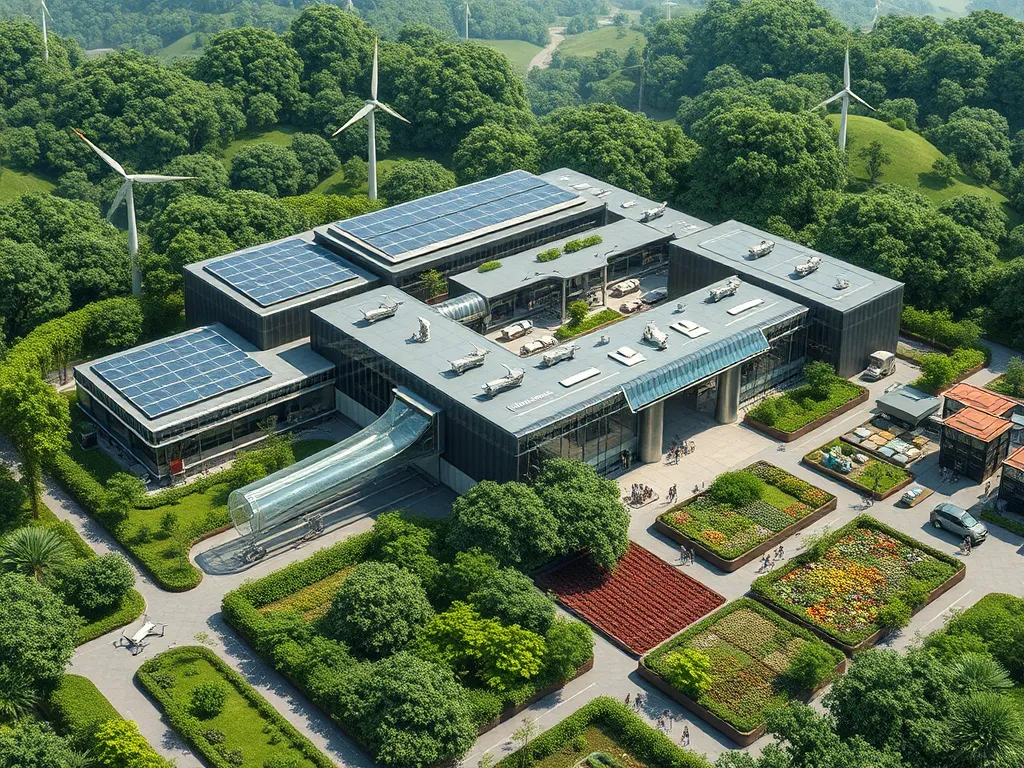Innovative Strategies for Future Waste Management

Future Waste Management: Innovations and Sustainable Practices
Future waste management is an evolving field that seeks to address the challenges of increasing waste generation and environmental sustainability. As cities grow and populations expand, the need for effective waste management solutions has never been more critical. Innovative technologies, sustainable practices, and robust policies are essential in shaping the future landscape of waste management. This article explores the various aspects of future waste management, highlighting the significance of advancements in technology, sustainable practices, and community engagement.
To effectively tackle solid waste challenges in North America, stakeholders must consider the innovative strategies presented by the CEC.
To effectively tackle the waste crisis, the future waste management sector must harness cutting-edge technologies. Automation, data analytics, and smart solutions are becoming integral to waste management systems, making them more efficient and reducing costs. Through the adoption of these technologies, we can envision a future where waste is minimized, resources are reused, and environmental impacts are lessened. Collaboration between governments, private sectors, and communities will play a significant role in actualizing these potential advancements.
Sustainable practices in future waste management will also be pivotal in reducing the amount of waste generated and enhancing recycling rates. The shift toward a circular economy—one that emphasizes reuse, recycling, and sustainable consumption—will help redefine how products are designed and disposed of. Community awareness and education will support these sustainable practices, encouraging individuals and businesses to adopt eco-friendly behaviors that reduce waste at the source.
The role of policy and regulation will be crucial in guiding the future of waste management. Governments must establish clear guidelines that promote sustainable practices, oversee proper waste disposal, and regulate hazardous materials. By creating supportive policies and frameworks, local and international governments can influence the behavior of companies and citizens, steering them towards greater eco-consciousness in their waste management efforts.
Lastly, community engagement will be vital in advancing future waste management initiatives. By involving citizens in waste management processes through education, clean-up drives, and partnerships with local businesses, communities can take proactive steps in addressing waste-related challenges. Empowering individuals to be part of the solution will lead to a greater commitment to reducing waste and fostering a culture of sustainability.
Technological Advancements in Waste Management
One of the most exciting developments in future waste management is the rise of smart waste bins equipped with sensors. These bins can monitor their fill levels, send alerts for collection when full, and optimize collection routes for waste management services. This efficient deployment of resources reduces operational costs and carbon emissions while ensuring timely waste collection.
Artificial Intelligence (AI) and machine learning are being integrated into recycling processes to improve efficiency and accuracy. AI systems can identify recyclable materials from waste streams, sorting them more effectively than humans. This technology not only enhances recycling rates but also reduces contamination in recycling bins, making the process more sustainable.
Blockchain technology is making waves in future waste management solutions by enabling tracking and verifying waste disposal practices. With blockchain, stakeholders can trace waste from its origin to its final disposal, ensuring responsible handling. This transparency promotes accountability among companies and reduces illegal dumping practices.
Robotic waste sorting technologies are revolutionizing the way recyclables are processed. Robots equipped with advanced computer vision can quickly and accurately identify different types of materials, streamlining the sorting process. This innovation increases the efficiency of recycling facilities and helps minimize the volume of waste sent to landfills.
Sustainable Practices in Waste Management
The zero waste philosophy is gaining traction as a fundamental approach to future waste management. This movement encourages individuals and organizations to eliminate waste and practice responsible consumption. By rethinking product design and usage, we can minimize landfill disposals and reduce environmental impacts.
Circular economy principles are reshaping waste management by promoting sustainable production and consumption patterns. Emphasizing resource efficiency, circular economies encourage businesses to design products that can be reused, repaired, or recycled. This change can drastically cut waste generation and enhance resource recovery.
Composting and organic waste management are essential components of sustainable practices in future waste management. By composting organic waste, communities can divert significant amounts of carbon-rich materials from landfills. This process also enriches soil health and fosters a more sustainable agricultural sector.
Upcycling and waste reduction strategies will become increasingly important in future waste management. By finding creative ways to repurpose discarded materials, individuals and businesses can reduce the waste stream and can contribute to the circular economy. Encouraging these practices in communities will drive a cultural shift towards more sustainable living.
Policy and Regulation in Waste Management
International waste management policies are instrumental in establishing a framework for responsible waste handling and disposal. Initiatives such as the Basel Convention govern the transboundary movement of hazardous waste, ensuring countries manage their waste effectively while minimizing environmental risks.
Local government initiatives play a central role in implementing waste management strategies on a community level. Governments can introduce composting programs, recycling incentives, and public awareness campaigns to engage citizens and drive sustainable waste practices.
E-waste management regulations are essential as technology continues to evolve rapidly. Governments need to establish guidelines for the safe disposal of electronic waste, making manufacturers responsible for the recycling and disposal of their products. This accountability will help mitigate the environmental impacts associated with electronic waste.
Incentives for sustainable waste practices can motivate individuals and businesses to adopt eco-friendly habits. Tax breaks for recycling initiatives, subsidies for composting systems, and rewards programs for reducing waste can significantly influence public behavior and encourage participation in waste sustainability efforts.
Community Engagement in Waste Management
Education and awareness programs are crucial for fostering a culture of sustainability within communities. By informing residents about waste management best practices, recycling rules, and the importance of reducing waste, communities can significantly alter consumer behavior and improve waste disposal methods.
Community clean-up events serve as interactive opportunities for residents to come together and take action against litter and pollution. These events not only beautify communities but also educate participants about the impacts of waste and the importance of proper waste management.
Partnerships with local businesses can enhance waste management efforts by promoting sustainable practices across various sectors. Collaborating with businesses to reduce packaging waste, implement composting programs, and enhance recycling initiatives can lead to meaningful change and collective community benefits.
The involvement of non-profit organizations is vital in future waste management discussions. Non-profits can drive grassroots efforts, conduct educational campaigns, and support local initiatives. Their advocacy helps shape policy, raise awareness, and mobilize communities around waste management issues.
Future Trends in Waste Management
Plastics innovation and alternatives are crucial in the future waste management landscape. Developing biodegradable and compostable materials alongside advancements in recycling technologies will help reduce plastic pollution and create a more sustainable materials economy.
Waste-to-energy technologies are gaining traction as an effective solution to move away from landfills. These technologies convert non-recyclable waste into usable energy, reducing waste volume while generating renewable energy. This dual benefit can significantly support energy sustainability efforts.
Urban mining and resource recovery will become increasingly important as cities seek to maximize resource efficiency. Extracting valuable materials from landfills and using them to create new products will promote a circular economy and reduce reliance on virgin resources.
Emerging global waste management challenges, such as climate change, urbanization, and population growth, will require adaptive strategies. As we envision the future of waste management, a comprehensive and collaborative approach will be essential in addressing these challenges and fostering a sustainable future for all.
